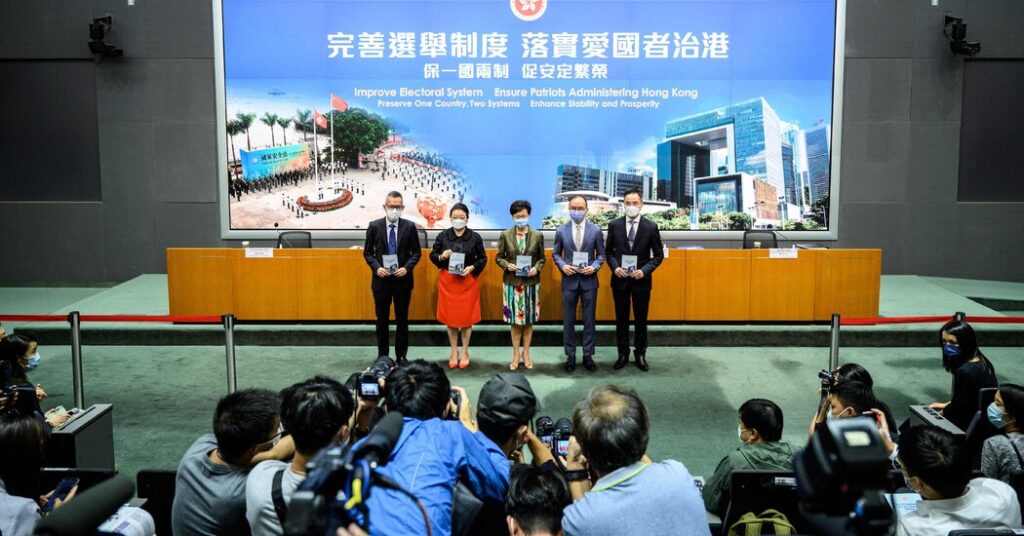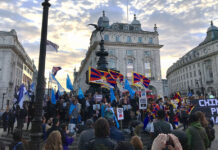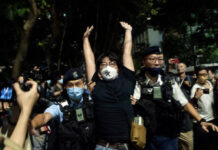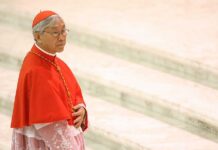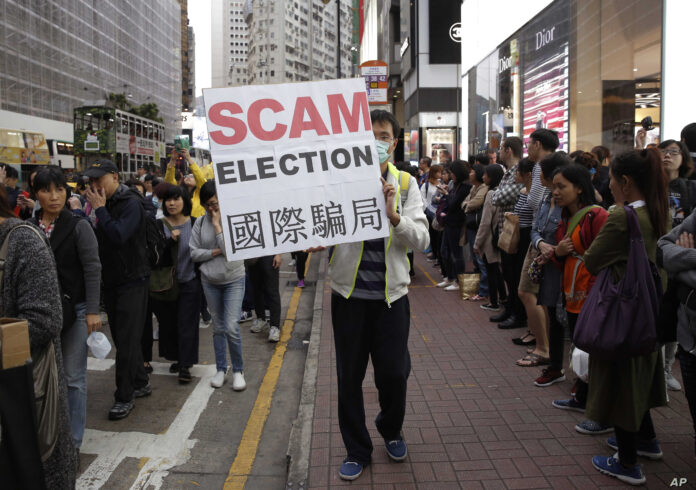
(TibetanReview.net, May28’21) – If the “17-Point Agreement” of May 23, 1951 on the basis of which China claims to have liberated Tibet, and the pursuant developments leading to the 1959 cataclysm, are anything to go by, Hong Kong does not seem to be far from meeting a similar fate. The only difference will probably be the brutal armed aggression and large-scale killings which accompanied the assimilation in the case of the former.
Barely a year after introducing a national security law in Hong Kong as a response to the social unrest of 2019, Beijing’s top legislature passed a sweeping resolution in March to overhaul the supposedly autonomous special administrative region’s electoral system. And pursuant to it, Hong Kong’s legislature on May 27 approved the biggest overhaul of its political system in the quarter century since the end of British rule, in a decisive step to assert Beijing’s authority over it.
The changes will reduce the proportion of seats in the legislature that are filled by direct elections from half to less than a quarter. What is more, a new body will vet candidates and bar those deemed insufficiently patriotic towards China from standing for election, thereby ensuring a cent percent pro-Beijing city legislature.
“These 600-or-so pages of the legislation come down to just a few words: patriots ruling Hong Kong,” Reuters May 28 quoted pro-Beijing lawmaker Peter Shiu as saying.
The report noted that while most of the changes were announced by China in March, Hong Kong authorities later contributed further details, such as redrawing constituency boundaries and criminalising calls for ballots to be left blank.
The Hong Kong legislature is actually already almost fully pro-Beijing. The latest measures were passed with 40 votes in favour and just two against. The city’s pro-Beijing government has faced no opposition in the legislature since last year, when China disqualified some pro-democracy lawmakers and others resigned in protest, the report noted.
Chinese authorities have said the electoral shake-up was aimed at getting rid of “loopholes and deficiencies” that threatened national security during anti-government unrest in 2019 and ensure only “patriots” run the city.
The city’s legislature will increase in size to 90 seats from 70. However, the number of seats filled by direct election will decrease to 20 from 35. Forty seats will be filled by a pro-Beijing election committee, which is also responsible for choosing the chief executive.
The report said the new vetting committee empowered to disqualify candidates will work with national security authorities to ensure those standing are loyal to Beijing.
US Secretary of State Antony Blinken has accused China of continuing to undermine democratic institutions in Hong Kong and called on it and Hong Kong authorities to release and drop charges against everyone charged under the national security law.
He has said that altering the composition of the legislature “severely constrains people in Hong Kong from meaningfully participating in their own governance and having their voices heard.”
China had previously promised universal suffrage as an ultimate goal for Hong Kong in its mini-constitution, the Basic Law, which also states the city has wide-ranging autonomy from Beijing.
However, since it imposed a national security law in 2020 to criminalise what it considers subversion, secessionism, terrorism or collusion with foreign forces, most pro-democracy activists and politicians have found themselves ensnared by it or arrested for other reasons, while compelling many others to flee abroad.
